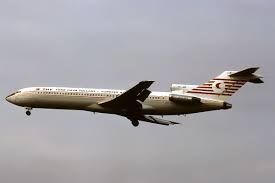Exploring the Future of Plane Travel

The Importance of Plane Travel
Plane travel is a vital component of global connectivity, facilitating international trade, tourism, and cultural exchange. In the post-pandemic era, the aviation industry is witnessing significant changes, making it essential to stay updated on current trends and innovations.
Recent Developments in Aviation
As of late 2023, airlines are focusing on sustainable practices. Many major carriers have begun implementing biofuels and exploring electric aircraft to reduce carbon emissions. For example, in September 2023, Airbus unveiled its latest model that is designed to operate on hydrogen, promising a substantial reduction in environmental impact.
Moreover, the demand for air travel has rebounded sharply, with many airlines reporting passenger numbers approaching pre-pandemic levels. According to the International Air Transport Association (IATA), global passenger traffic increased by 58% from 2022 to 2023, indicating a growing confidence in flight safety and health protocols.
Technological Innovations
Technological advancements are also reshaping the flight experience. Airlines are increasingly offering improved in-flight entertainment systems and enhanced connectivity options, allowing passengers to remain connected throughout their journeys. The implementation of Artificial Intelligence (AI) in operations has optimised flight schedules, improving efficiency and reducing delays.
Security measures have also evolved; biometrics technology is becoming commonplace, streamlining passenger processing through check-ins and boarding gates, thereby enhancing the overall travel experience.
Challenges Ahead
Despite the positive trends, challenges remain. The aviation sector is grappling with rising fuel prices and staffing shortages, impacting operational capabilities. Many airlines are working to address these issues by offering competitive salaries and improving working conditions to attract talent back to the industry.
Conclusion
The future of plane travel looks promising, with sustainability and technological advancements paving the way for a more efficient and environmentally friendly aviation industry. For travellers, this means improved experiences, increased safety, and a potential reduction in travel costs in a market that becomes ever more competitive. As these trends develop, staying informed will be crucial for passengers and stakeholders alike, ensuring they are prepared to adapt to the evolving landscape of air travel.
